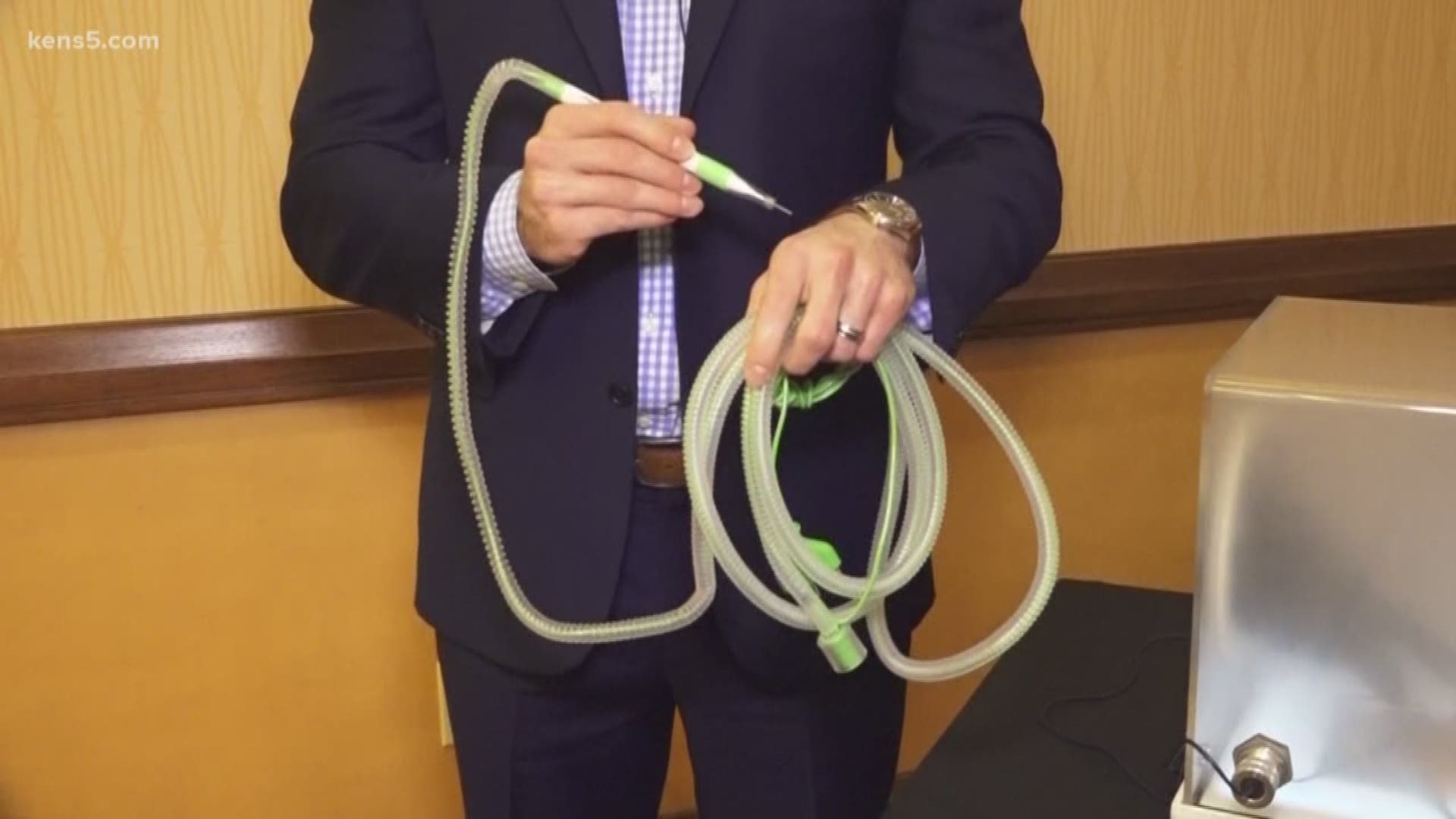SAN ANTONIO, Texas — Opioids, surgical smoke and surgical sponges—all three present problems one medical device company aims to solve.
Going under the knife can be scary for some people. But the future of operating rooms could be cleaner and more organized thanks to big strides in medical technology. A high-tech look at what could be the next big advancement in surgery was on display Tuesday by the medical device company Stryker, and they help with everything from pre-op to recovery.
"Stryker is a medical device company that was founded by Dr. Homer Striker in 1941. He said if your tools don't work for you, make tools that will work for you," said Jason Davies, senior brand manager for the company.
For instance, surgical smoke is created when cauterizing tissue can spread 150 chemicals, including 16 EPA-priority pollutants and carcinogenic hazards, to patients and medical staff. So much so that it is equivalent to smoking 30 unfiltered cigarettes a day.
Now Stryker wants to eliminate the harmful byproducts created by going under the knife. The idea is to remove unhealthy surgical smoke created during surgery.
"Surgical smoke moves up to 40 mph, so in the operating room it's very challenging to ever see smoke accumulate because the airflow is constantly moving the air around," said Stryker Brand Manager Nick Meginnis.
The surgical team could be inhaling all sorts of things like lung-damaging dust, tobacco smoke and bacteria.
"This is Stryker's E-SEP smoke evacuating pencil," Meginnis said, showing off another device. "It is very similar to an electro-surgical pencil, but instead it has suction built into it."
Up to 15 percent of Americans struggle with some kind of addiction. That number is the same in the field of medicine.
"10 to 15 percent of healthcare workers have addictive traits in them and show signs of drug or alcohol addiction throughout their careers," said Patrick Moesta, an associate brand manager for Stryker.
But a new smart sink could be the solution.
"Instead of leaving that syringe in a sharps container where someone can dig for it and eventually divert it or dump it down the drain where it winds up in our water system," Moesta said. "This accepts that waste and makes it unusable and non-retrievable."
Surgical errors are the third-leading cause of death in the United States, and retained surgical sponges are the number one retained item in operating rooms, happening once every 14 hours in the U.S.
What's the cost? An average of $600,000 in malpractice dollars to a hospital. And close to 5 percent of surgeries with retained surgical items result in patient death.
"The idea to stick a barcode on a surgical sponge," Davies said.
The sponges are scanned before surgery so the computer knows how many are being used. And then after, "the circulator nurse when she or he has time I go over to the sponge bucket and you can see it's very simple, it just adds a second to scan these out."

